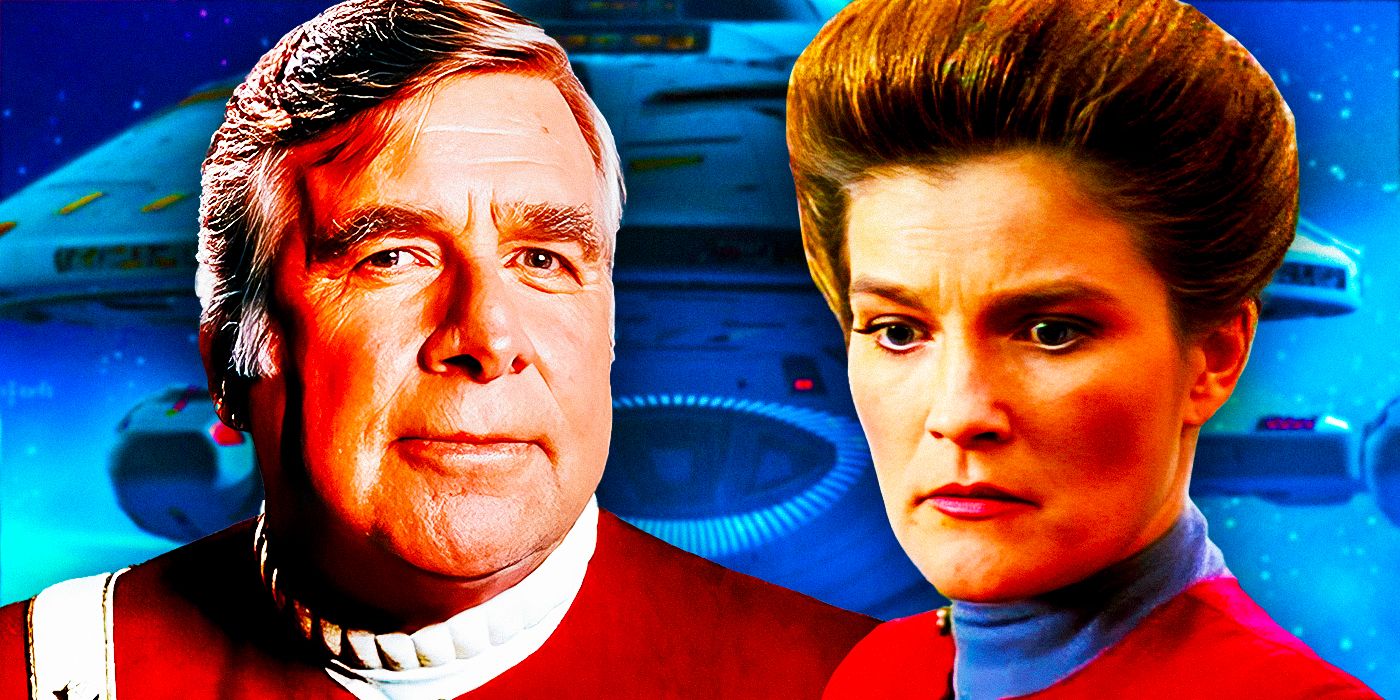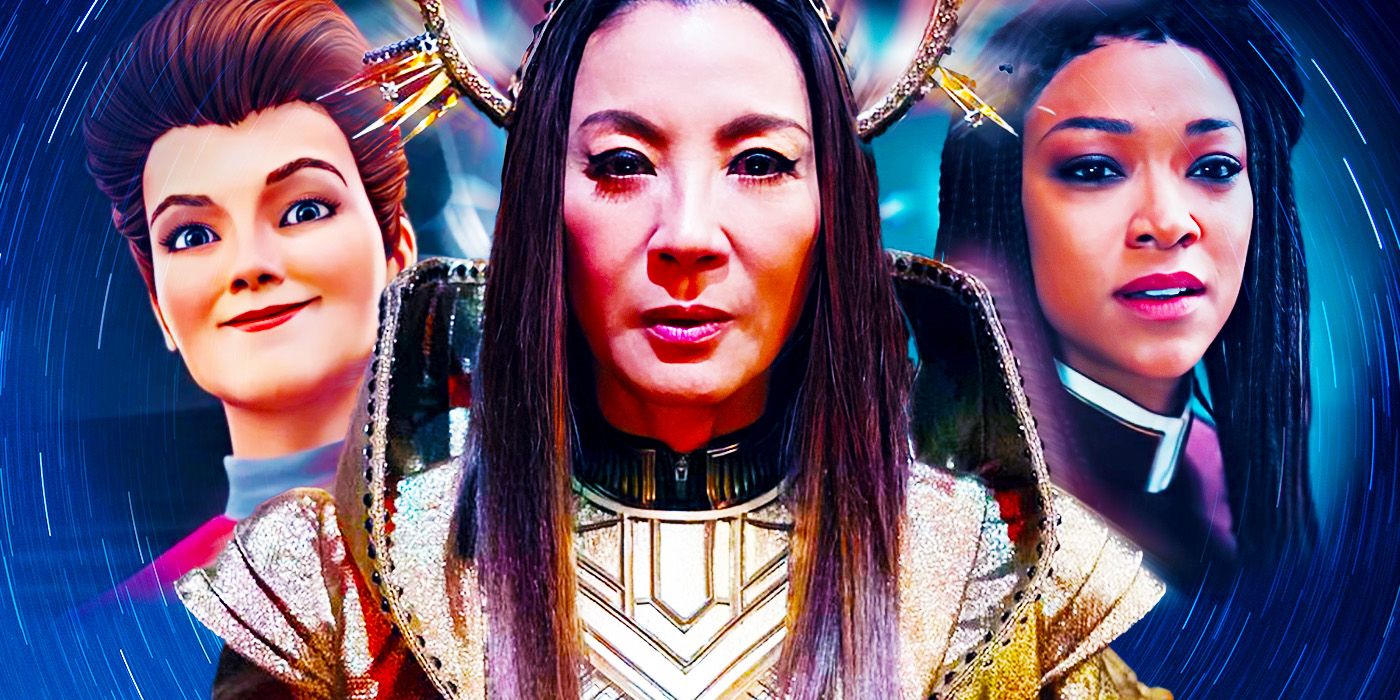Star Trek: Voyager showrunner Michael Piller wanted to emphasize the importance of Gene Roddeberry’s original vision in his final episode on the show.

Summary
- Michael Piller’s last episode on Star Trek: Voyager aimed to uphold Gene Roddenberry’s ideals.
- Piller sought to remind Voyager’s creative team about Roddenberry’s vision of Star Trek by titling his final Voyager episode “Basics.”
- Voyager continued to balance entertainment with moral storytelling after Piller left.
Star Trek: Voyager‘s departing showrunner Michael Piller wanted to reaffirm franchise creator Gene Roddenberry’s vision in his last episode. Piller was an active part of Star Trek for most of the 1990s era of the franchise, and contributed his writing, producing, and showrunning talents to Star Trek: The Next Generation and Star Trek: Deep Space Nine as well as Voyager. While working on Star Trek: TNG in particular, Piller would have worked closely with the legendary Gene Roddenberry, creator of Star Trek: The Original Series and father of the entire franchise.
Although Roddenberry passed away midway through TNG‘s run, he was heavily involved with the creation of the show and imbued his unique ideals into the premise just as he had with TOS. Thanks to Roddenberry, Star Trek TV shows are known for not only depicting a utopian vision of the future but also for regularly dealing with real-world issues or morality puzzles during its episodes. Although this declined a bit once Roddenberry lost creative control of Star Trek, people who had known Roddenberry, including Michael Piller, still sought to include it in newer shows.

Michael Piller Wanted Voyager’s Season 2 Finale To Reaffirm Roddenberry’s Original Star Trek Message
Piller wanted “Basics” to remind his fellow showrunners about the franchise’s core values
In an interview on the DVD special features for Voyager season 2, entitled Braving the Unknown, Piller discussed how his final writing credit on Voyager was an attempt to get his fellow showrunners, Rick Berman and Jeri Taylor, to plug back into Roddenberry’s vision. Piller discussed how the name of Voyager‘s season 2 finale and season 3 premiere, “Basics” was intentional, and a deliberate plea for the creative team on Voyager to get back to basics with their storylines going forward. Read Piller’s full quote below:
“The last thing I wrote for Voyager was ‘Basics’, and it wasn’t by chance that it was named, ‘Basics’. And it wasn’t by chance that it was about some fundamental issues confronting this Starfleet crew, because it was my message to the franchise to say… the key for success, the way to make this show work, the way to make this franchise fresh, is to stay with the basics that [Gene] Roddenberry set forth to us to begin with, to do the stories that have themes, to always ask, ‘What is it about?’ […] That’s what Roddenberry taught me and that was my last message to the staff of Voyager.”
Although “Basics” wasn’t the most thematically relevant episode of Voyager‘s first two seasons, it was the culmination of several important storylines. These included a final confrontation with Seska (Martha Hackett) the Kazon, Chakotay’s (Robert Beltran) struggle with supposedly becoming a father to a child he does not want, and Lon Suder’s (Brad Dourif) redemption after the reveal of his murderous tendencies earlier in the season. Taking these stories into account, it seems that Piller tied “Basics” back to the more human themes of the series rather than larger science fiction concepts in an effort to support Roddenberry’s vision.
Did Star Trek: Voyager Successfully Follow Roddenberry’s Teachings After Piller Left?
Voyager was like any other show in the franchise after Piller departed
Although Voyager didn’t always follow Roddenberry’s vision after Piller left, this wasn’t different than any other franchise show of the era. Except for DS9, whose Dominion War plot consistently dealt with morality issues, the 1990s Star Trek series were a solid mix of episodes with particular messages and episodes that were intended to simply be entertaining. Voyager could perhaps have taken a page out of DS9‘s book and delved into the show’s deeper issues with serialized storytelling, but the series still did a fine job of straddling the line between entertainment and plots that made viewers think.
Taking these stories into account, it seems that Piller tied “Basics” back to the more human themes of the series rather than larger science fiction concepts.
As for keeping the franchise fresh by going “back to basics,” Voyager was able to accomplish this with its premise. Having the show be set in the Delta Quadrant on the other side of the galaxy gave Voyager more of a feeling of TOS, in terms of exploring “strange new worlds” and discovering new forms of alien life. This was unlike shows set in the Alpha Quadrant, which largely had a familiar set of aliens to work with. Although Star Trek: Voyager could have focused on big-picture episodes more, Piller’s final commandment was still followed often enough.




